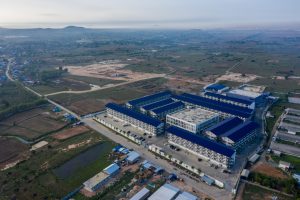The latest report from Amnesty International, “I Was Someone Else’s Property,” reveals a harrowing reality: at least 53 scam compounds across Cambodia have become hubs of modern slavery, human trafficking, torture, and forced labor. These compounds, often disguised as legitimate tech parks or business centers, are operated by transnational criminal networks with apparent impunity. Victims – lured by fake job ads – are imprisoned, abused, and coerced into defrauding people worldwide through online scams. The report documents how these operations are enabled by systemic corruption, weak law enforcement, and a lack of political will to dismantle the criminal infrastructure.
While Taiwanese citizens are not the largest group affected, they face unique and severe risks due to their international status. In recent raids, dozens of Taiwanese nationals were arrested, and many were wrongly identified as perpetrators rather than victims of trafficking. Without proper screening procedures, these individuals are often treated as criminals and, in some cases, forcibly extradited to China, where they face prosecution and detention under Beijing’s jurisdiction. Taiwan’s lack of formal diplomatic ties with Cambodia further complicates rescue efforts, leaving victims vulnerable and without recourse.
The situation is further exacerbated by the demographics of the victims. Many are extremely young, including minors, who are deceived by fraudulent job advertisements on social media platforms. These ads promise glamorous lifestyles and high-paying, easy work in Southeast Asia. Upon arrival, however, these individuals are stripped of their documents, confined under armed guard, and subjected to physical and psychological abuse. Surveillance systems, armed guards, and barbed wire fences make escape nearly impossible. The betrayal of their aspirations and the trauma of captivity leave lasting scars that are often overlooked in public discourse.
Amnesty International’s findings underscore the Cambodian government’s failure – and in some cases, complicity – in addressing these crimes. The lack of enforcement and accountability has emboldened criminal syndicates, allowing a billion-dollar shadow economy to flourish. Victims are often denied access to justice, and the absence of transparent investigations perpetuates a cycle of impunity.
This crisis demands a coordinated and rights-based regional response. Governments in the Asia-Pacific must prioritize the protection of trafficking victims over immigration enforcement. All individuals rescued from scam compounds should be treated as potential victims of trafficking and granted access to legal aid, medical care, and psychosocial support. Authorities must ensure that no victim is criminalized or deported without a thorough and independent screening process.
Furthermore, regional cooperation is essential to dismantle the transnational networks that operate these compounds. Intelligence sharing, joint investigations, and mutual legal assistance must be strengthened to hold perpetrators accountable. Countries must also regulate recruitment practices and digital platforms that facilitate trafficking, ensuring that tech companies are not complicit in the spread of deceptive job advertisements.
The international community must also hold the Cambodian government accountable for its obligations under international human rights law. Diplomatic pressure, targeted sanctions, and support for civil society organizations working on the ground can help create an environment where victims are protected and traffickers are prosecuted. The silence and inaction of governments only deepen the suffering of those trapped in these compounds.
The crisis of scam compounds in Cambodia is not confined by borders. It is a regional emergency that requires urgent, collective, and sustained action. The voices of survivors, the findings of human rights organizations, and the principles of justice must guide the response to this modern form of slavery.

































